The Surrounding Game: A Search for Purpose, Happiness, and a Professional Career
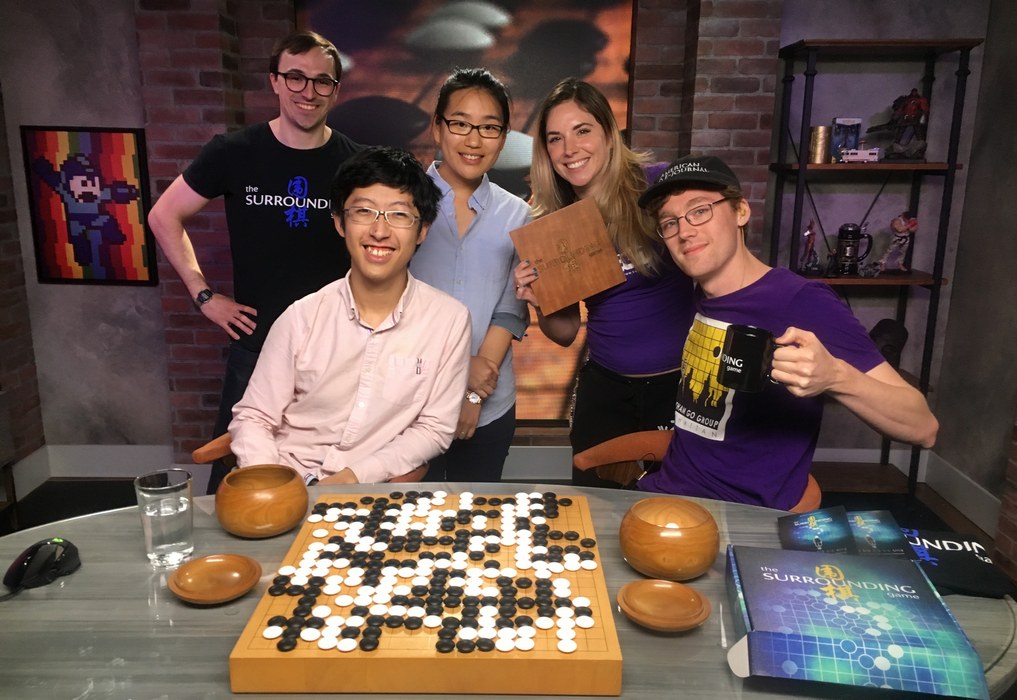

Introduction
Go players spend countless hours hunched over a board analyzing countless variations of black and white stones. It’s infuriating, agonizing, and sometimes rewarding. Improvement means memorizing patterns, doing endless problems, and reviewing game after game. Almost every player will ask, “is it really meaningful to spend so much of my life hunched over a wooden board?”
The 2017 documentary The Surrounding Game, co-directed by Will Lockhart and Cole D. Pruitt, excellently explores that existential question. The film follows some of 2012’s top young amateur players as they seek to become North America’s first professional players.
The Film
The film largely follows Ben Lockhart, Andy Liu, and Curtis Tang, as they battle their way through the pro qualification event. The film also features many familiar faces from the local U.S. Go community, such as professional Stephanie Yin, American Go Foundation President Terry Benson, American Go E-Journal journalist Keith Arnold, and other recognizable faces.
Lockhart and Tang set forth to document the journey of young aspiring players as they take on the first pro qualification event at the 2012 U.S. Go Congress.
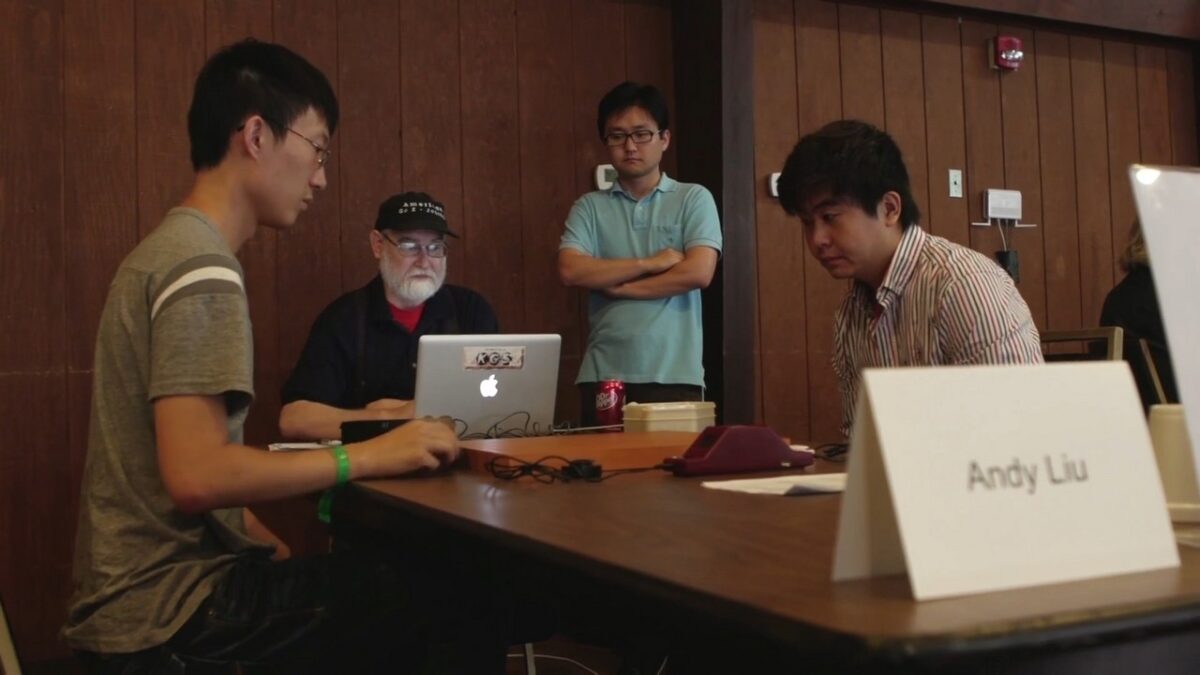
The documentary begins with a quote by Edward Lasker, “The rules of Go are so elegant, organic, and rigorously logical that if intelligent life exists elsewhere in the universe, they almost certainly play Go.” This quote sets a tone that Go is “natural” and “good.” Despite this, our protagonists struggle to find meaning both in the game and in life. In many ways The Surrounding Game asks its audience the question, “Is this a fulfilling life”?
My Review of the Film
This film is a true journey, as we follow Andy, Ben, and Curtis on their quest to become a pro. The stakes are high, as that among all the top players in North America, only two will become professionals. I’d recommend this film for all Go players, as it truly captures a unique moment in Go history, the birth of North American professional Go. For anyone that’s read the book “First Kyu,” The Surrounding Game is as close as you’re going to get to capturing that hero’s journey of a Go player in a movie.
The documentary is most interesting to a knowledgeable Go player, but it also doesn’t alienate its inexperienced viewers, as the film spends ample time setting up the rules and premise of the game for its audience.
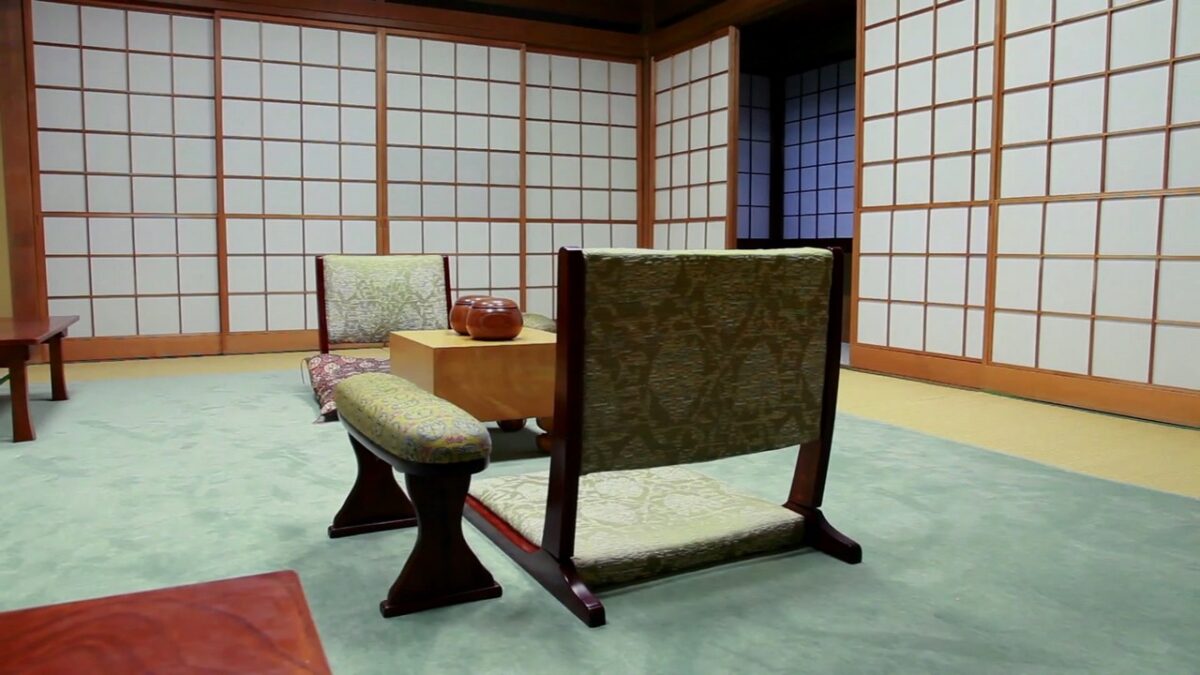
As I watched the film, I couldn’t help but feel that I’d found some tenderly written letter of unrequited love. The care and thought put into each second of this movie is truly moving for any Go player. Lockhart and Tang’s greatest accomplishment is that they capture a sense of “longing” and “fear” in the players. Longing, that Go would love them just as much as they’ve loved Go. Fear that maybe spending their lives staring at a wooden board moving black and white stones into familiar patterns might not be the most fulfilling of lives.
As for the question, “Does playing Go lead to a meaningful life?” There is a heartwarming scene near the end where Ben Lockhart and the filmmakers are invited to see Go Seigen with nine-dan professional Michael Redmond, and Go Seigen says, “Go can bring happiness to people around the world. That is the best thing. I’m glad that I have played Go.” In 2022, that quote takes even more resonance as one of the movie’s protagonists, Ben Lockhart, died of cancer in 2019. This film, in many ways, memorializes the young man’s passion, love, and joy for the game in a lovely and lasting way.
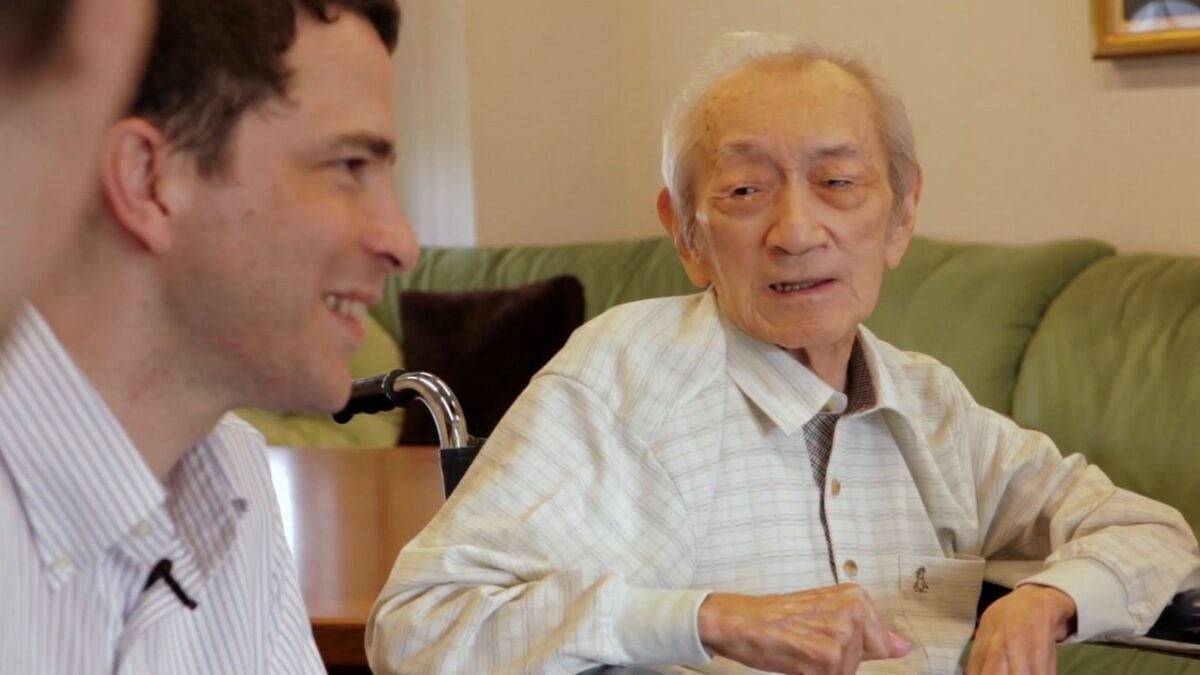
This film is truly special. It is filled with wonder, imagination, fierce competition, and heart. A must-watch for any Go player.
Interview with Co-Director Will Lockhart at the 2022 U.S. Go Congress
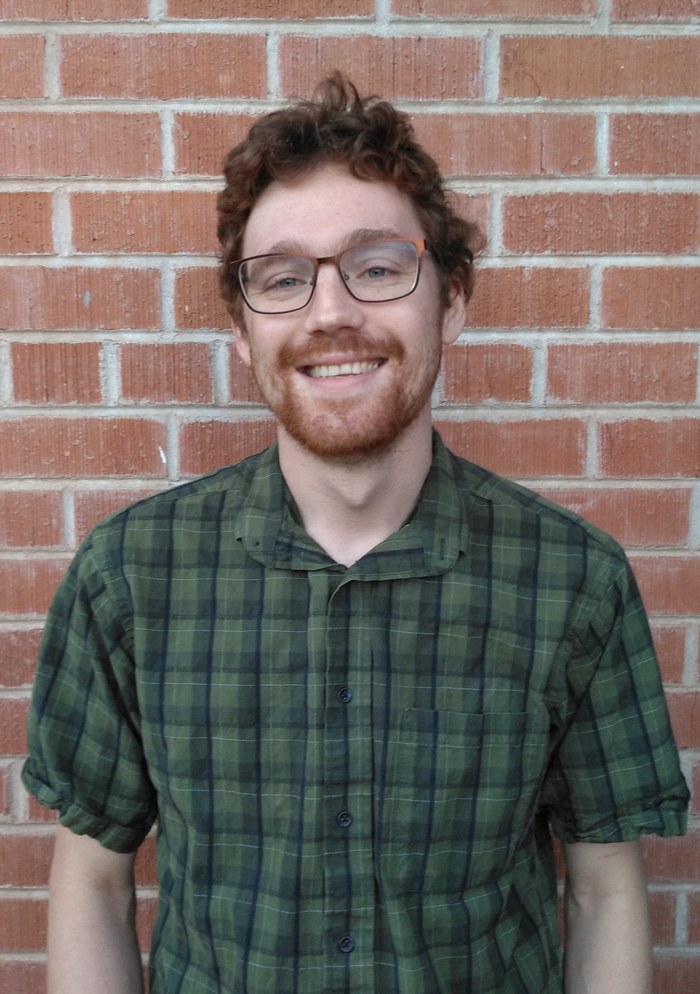
Jae: How did you get into directing “The Surrounding Game”?
Will: There were many people involved in the film. My friend Cole and I were steering the ship. It’s really kind of a crazy story. People always say, I can’t believe you had the balls to do that. I didn’t have any filmmaking experience. My mom is a film editor, and while she didn’t help us [directly] with the film, she advised us each step of the way. She found the person who eventually wrote the music for the film, that kind of stuff. Ben and I were really into Go as teenagers. We had family in the film business, and there was a vague recognition, wouldn’t it be great if there was a Go documentary? This was before “AlphaGo”. Even more so than right now, Go really felt like a hidden gem in the West. So for a long time we thought it would be a great time for a Go documentary, but we never really thought we’d be the ones to attempt it.
Jae: How did you meet Cole?
Will: I met Cole in my undergrad at a Go club, I was a low dan player, and he was around a 10 kyu, but was rapidly rising the ranks We went to a couple college team tournaments, and then, we had this lucky opportunity to go on this cultural exchange program for college Go players. Cole and I were invited to this week-long trip to China, sponsored by the Ing Foundation, to play Go with college students in China. That was the summer of 2011. During that time we were at a peak excitement about the game in general and promoting the game, and later that year was the bombshell they were starting a U.S. pro system.
Jae: That must have been exciting to hear.
Will: It was sort of bizarre. Like how? We talked about how it happened in the movie. Once we knew it was happening, Cole and I looked at each other and thought, if we’re ever going to make this documentary, this is impetus.
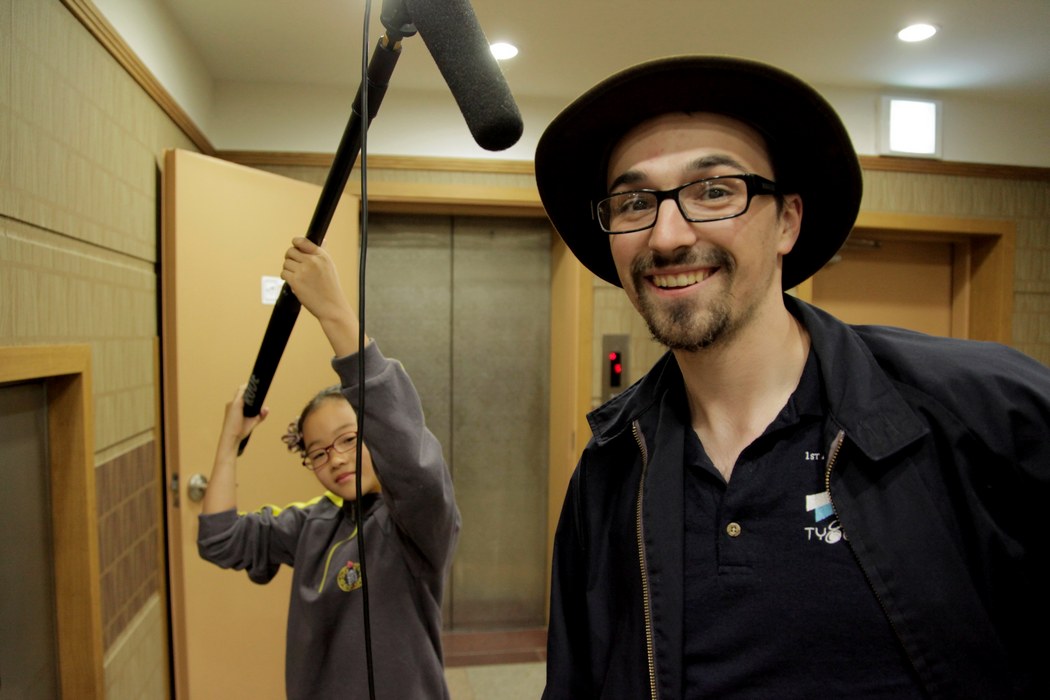
Jae: I watched “AlphaGo” after watching your documentary, and I felt that a lot of the artistic and atmospheric choices were very similar to yours in a lot of ways.
Will: I didn’t see it when it first came out. I did eventually, but it felt like they were scooping us. They had the backing of Google, and you can’t compete with Google. So when it first came out, I was horrified that we might have waited too long. We certainly have the recognition in the community, since we were community funded and supported, but AlphaGo was more for the mainstream. But as time went on, I realized I didn’t need to get my ego involved. It’s not a competition, and in fact it might actually be a good thing for us, because whenever anyone watches AlphaGo, we’re the next recommendation.
Jae: Can you tell me a little about the filming process?
Will: Stop me if I go on too much of a tangent.
Jae: No, please go for it.
Will: There was a kind of revolution, when digital cameras had just gotten small and cheap enough that random dudes like me could just grab a camera and start filming. Compare that to how filmmaking was in the past where things were actually on film. You couldn’t just film for hours and then throw it away. It was expensive and time-consuming. So this opened up a whole new world for documentary filmmaking, because you could just record digitally for hundreds of hours. You don’t have to plan nearly as much in advance; you can just be a fly on the wall, hit the record button, and see what happens. When we first started we didn’t know what we were doing, we were just filming interviews, the sound quality was terrible. We were just trying to get experience. That was the first time we went to Asia.
The second time we went back to Asia, we were more prepared. That being said, it’s really hard to do logistics for a trip halfway across the world.
In North Carolina, we had all these people helping us out. So that’s where we felt the most professional. We had a second cameraman, friends holding mics, and doing reconnaissance. We were much more prepared.
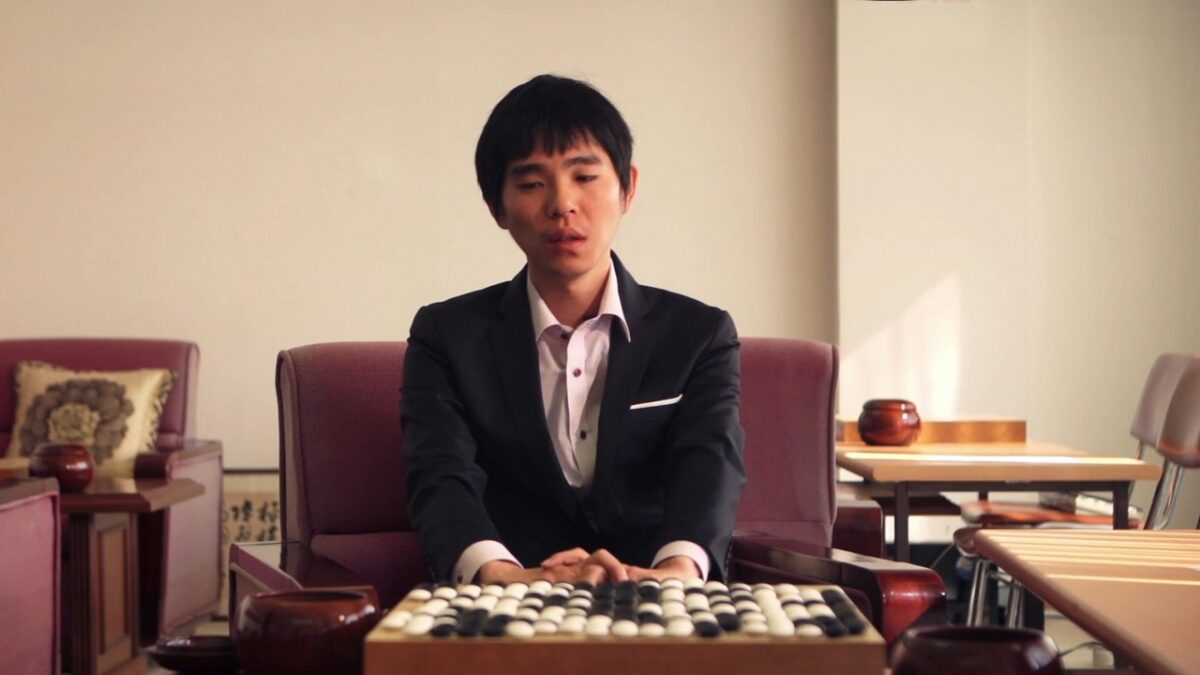
Jae: How was it getting the film out there in the world?
Will: It was difficult. No matter how good a film is, if you’re a nobody, it’s hard to get a real distributor. We eventually landed on a hybrid DIY approach, and that company helped us land the Netflix deal.
Jae: How cool was it to see your movie on Netflix?
Will: So cool. It was so good. That’s as much as you can hope for. We realized that maybe the reason we could get on Netflix is because of “AlphaGo” coming out, and Netflix wanting to pitch a complementary film.
Jae: Did you ever see the viewership numbers?
Will: No. Netflix is notoriously secretive about their viewership. Netflix just paid us in a lump sum, and so we never really had any information about how it was doing. Even with their big shows, they’re tight-lipped about their numbers.
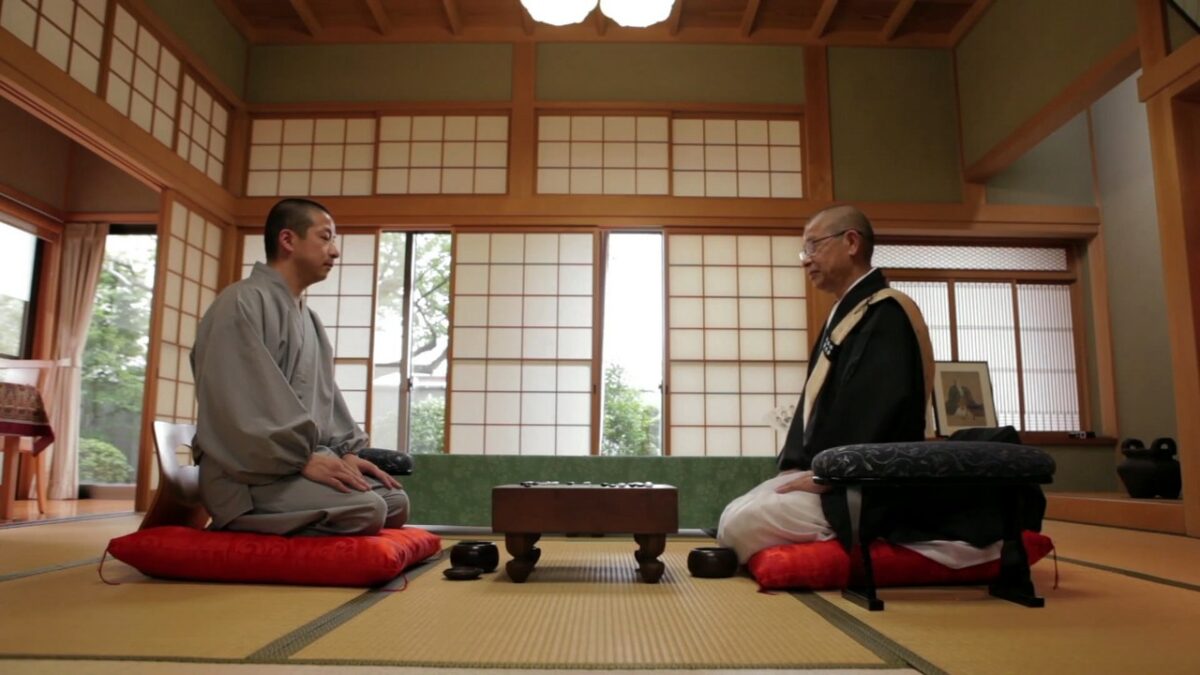
Jae: How was it to meet Go Seigen?
Will: Absolutely unreal. We didn’t even know it was going to happen until the last second. The Go Seigen interview was actually thanks to Michael Redmond. We’d gotten in touch with Michael through email, just letting him know we were coming to Japan. He mentioned over email we might visit Go Seigen. We kept hitting refresh on our email, wondering if it was going to happen. But I guess Michael knew someone close to Go Seigen, and he could arrange it.
We almost had this massive mishap at the train station. We were supposed to meet Michael to go see Go Seigen, but we couldn’t find each other. The train was about to leave in a few minutes, but Ben saved the day by sprinting around the entire circumference of the train station.
Ben getting to meet Go Seigen was so powerful. It wouldn’t have been the same without him in the room. It was a powerful culmination of Ben’s personal journey. Richard’s the one who connected the dots on that scene.
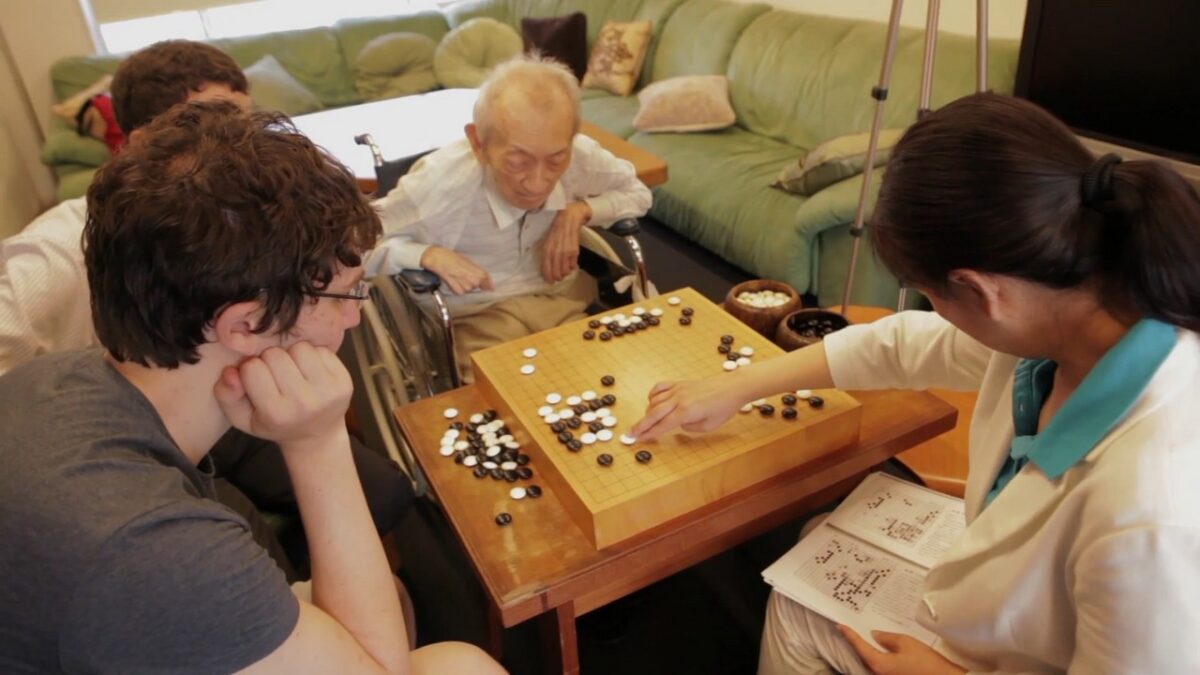
Jae: A lot of the main people in the documentary are very young. It felt to me that a lot of them repeat this phrase over and over, “what are we doing?” It felt like they were searching for something. Can you elaborate on that?
Will: They say that when you make a movie, you make three movies. The first movie is the movie you plan to make. The second movie is the one you actually film. The third is the one after you actually put it all together.
So at first, it was all about telling people about how cool Go is, and promoting Go, which, of course, is still part of it. But once we started slaving away and putting in hundreds of hours, it became clear that we’re all going through some shit. We just don’t know what we want in life, and it became clear when we started watching the footage. It felt the right story to focus on.
Richard, our editor, helped pull us in the right direction. Richard not coming from the Go community was a refreshing perspective because sometimes we had tunnel vision, and he reminded us to get back on track. He was pulled to focusing on character. Especially Andy’s character. I also found myself exploring the existential questions. What are you supposed to do? How do you decide how to live your life? Is it supposed to just be sitting inside staring at a board of black and white stones for hours on end? Is that a fulfilling life?
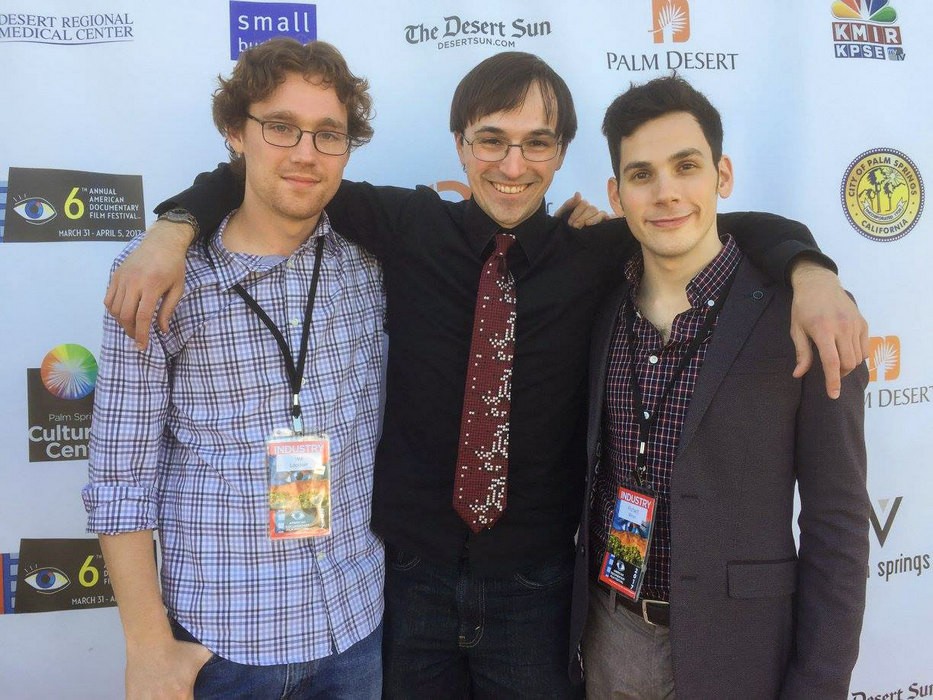
Jae: How is your Go game today?
Will: I’d already put as much serious time into the game as I was going to do, and I feel most people plateau at some point. At maybe a mid-dan level, you need to be a natural at the game, or really put in the 10,000 hours to improve. I knew I wasn’t interested in that. There’s so much else to do in life. Ben and Andy weren’t as sure. I think that if there had been more structure for the professionals in the U.S. and this is true for many of the U.S. pros, they could’ve made it their career. But it’s just not feasible. Ben had a much more ideological position on not wanting to “sell out.” But then life happens.
Jae: Do you have any future projects?
Will: I know I’ll never do a film of that scale again. I just finished my PhD, that was the past six years. It’s been a pretty hard last six years with Ben, COVID, and the grind of this program. Coming here was like the perfect celebration of trying to melt years of stress. I did go to Wisconsin in 2019, but Ben was really sick at that point and he wasn’t there. It felt bad that year. But it’s nice to be back in a place where people knew him, liked him, and respected him.
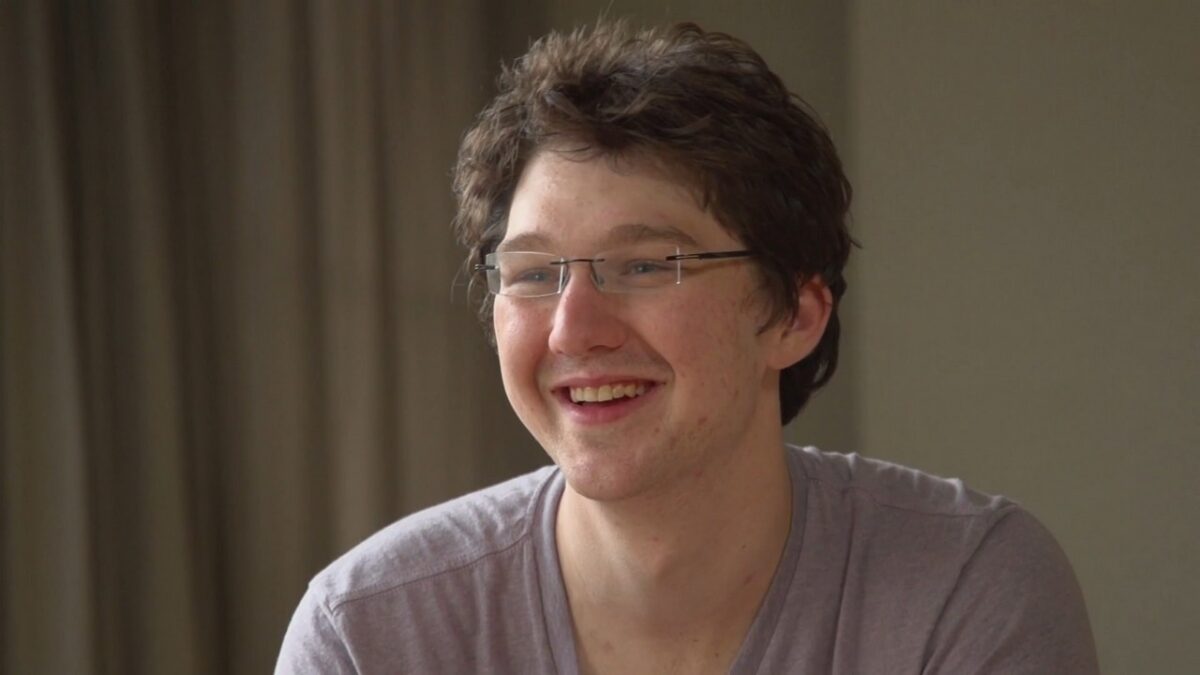
Jae: Well, thank you for sitting down for the interview. I really appreciate your time.
Will: Yeah. One hundred percent. Thank you.
Where to Watch the Movie?
The movie is available to watch on VIMEO from $3.
🌐 The Surrounding Game Website
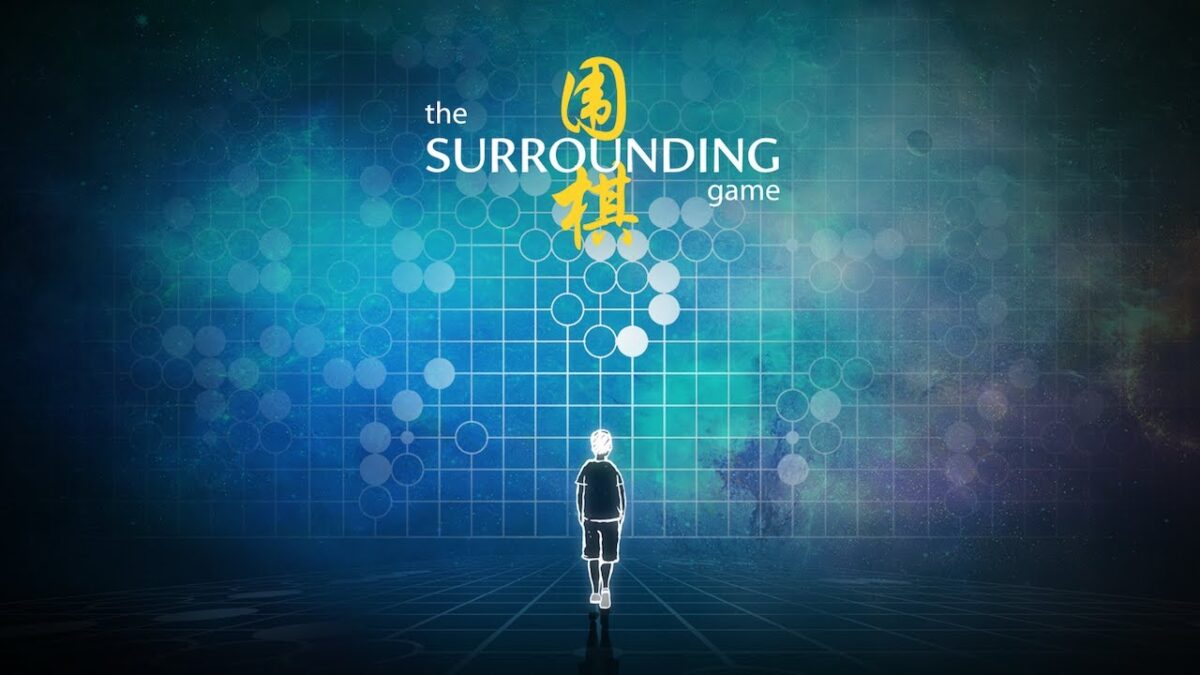
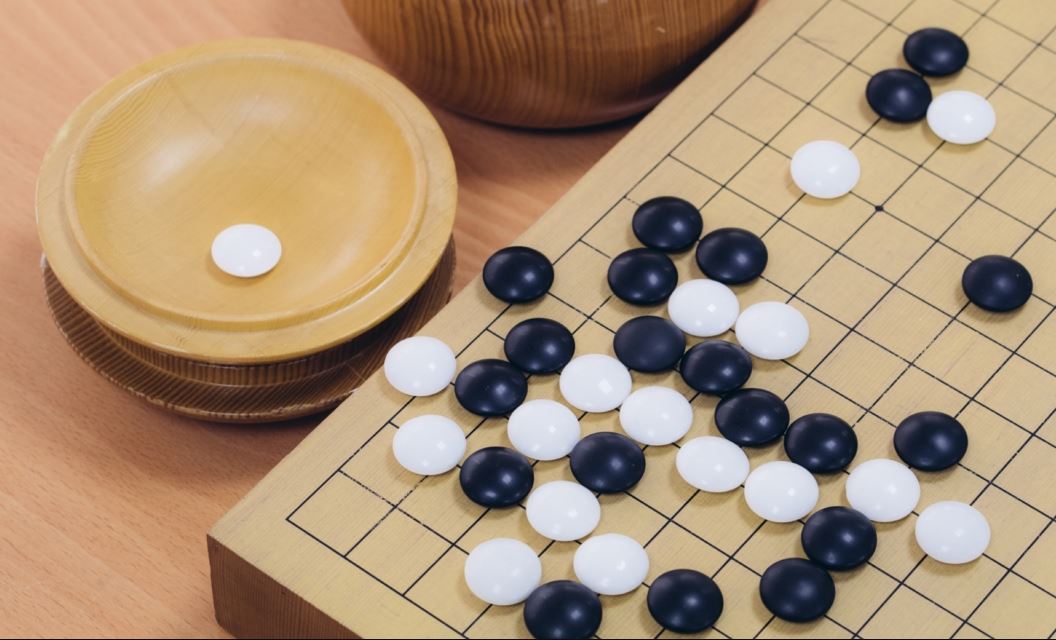
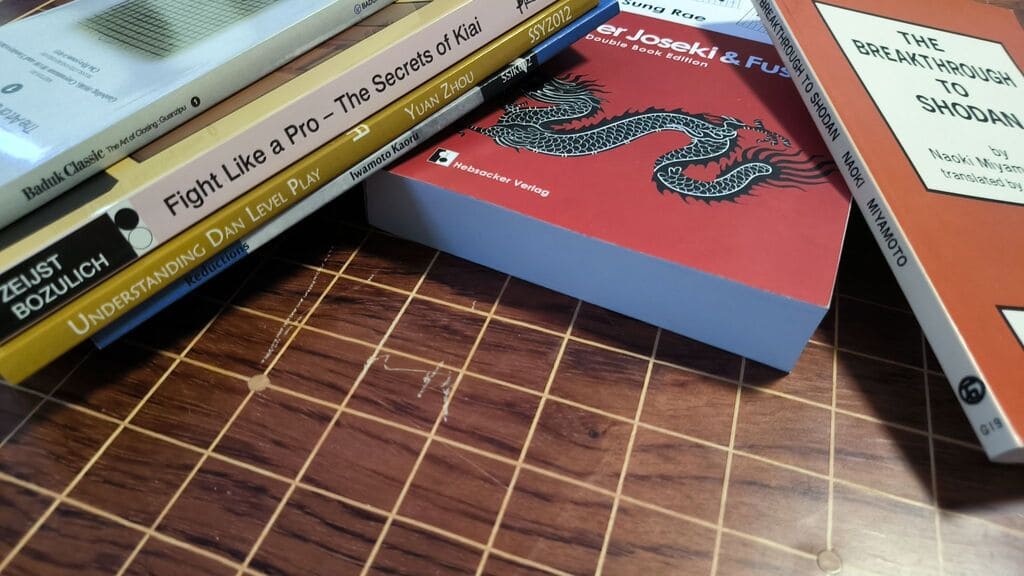
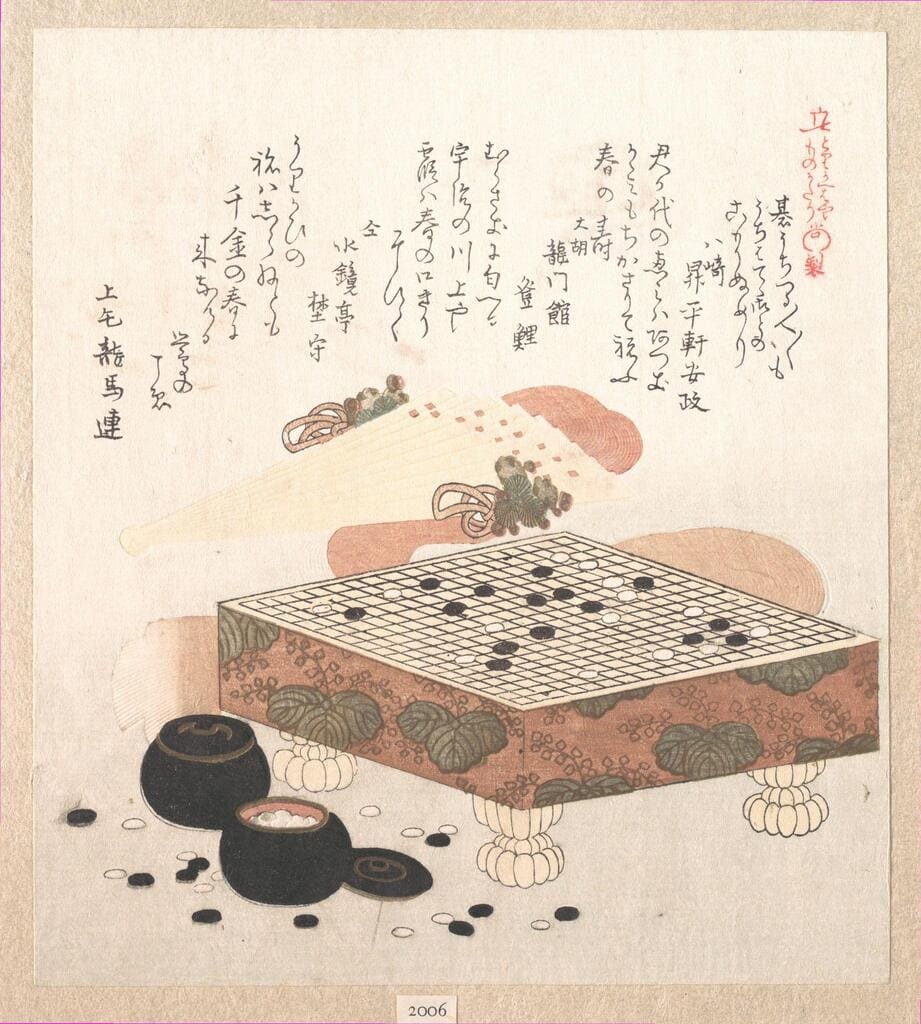
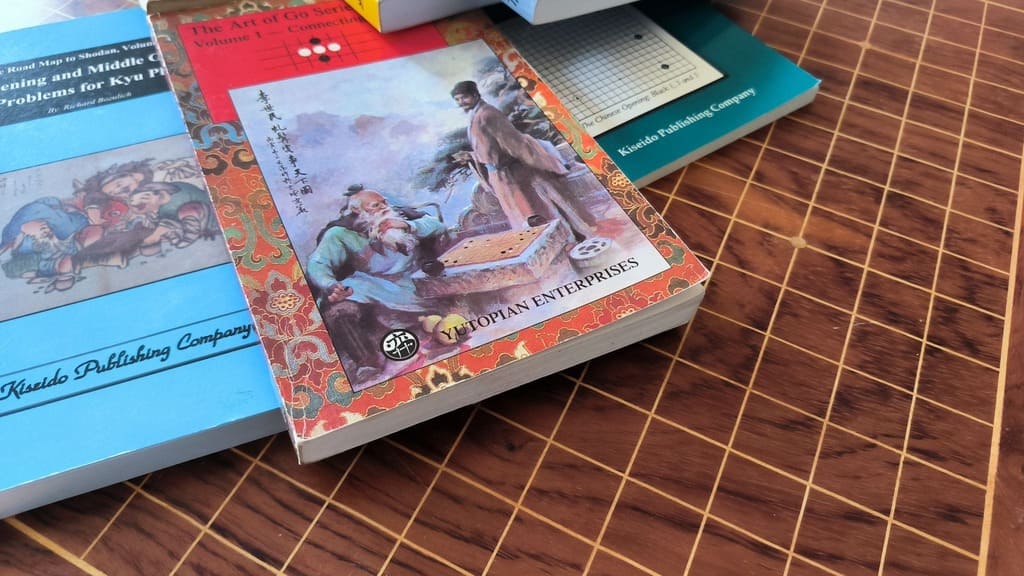
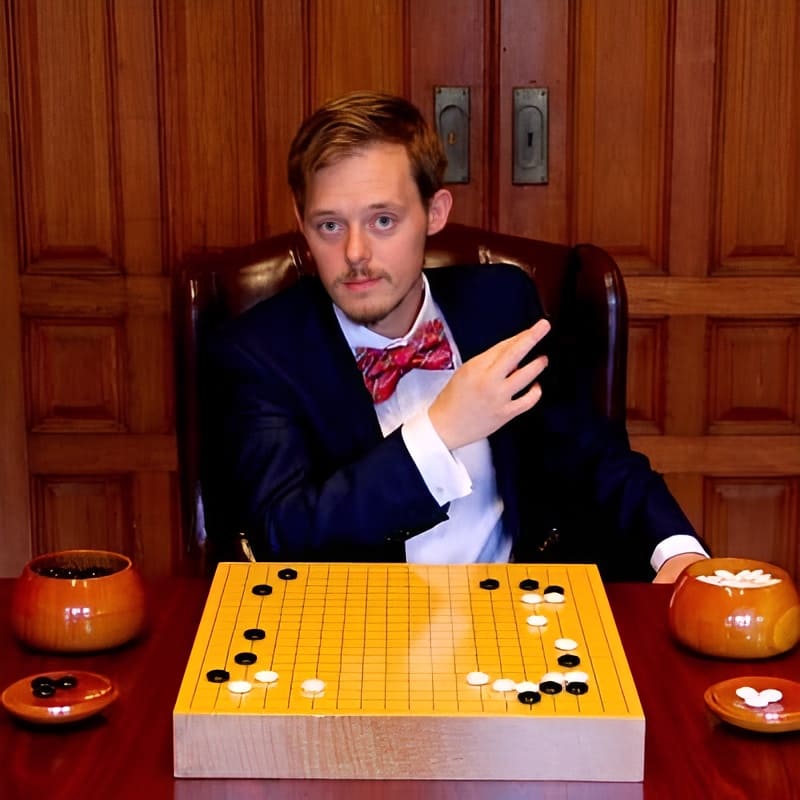
Great article and a great documentary. While I have a copy, it is always fun we we have a viewing at a US Go Congress!
An excellent overview of the documentary’s preparation and, above all, the significance of choosing the life of a professional Go player.